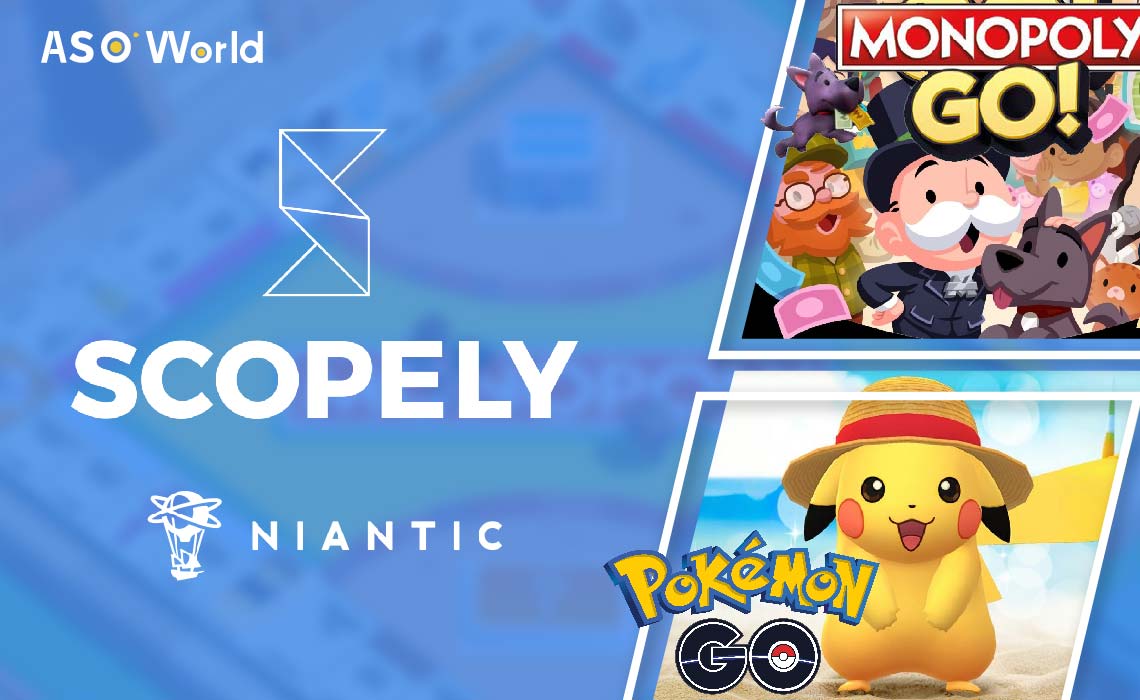In a landmark deal announced on March 12, 2025, Niantic has sold its games division, including the iconic Pokémon Go, to Scopely—the company behind Monopoly Go—for $3.5 billion.
This shift sees Scopely, a mobile gaming giant, absorbing Niantic's portfolio while Niantic pivots to focus on spatial computing through Niantic Spatial.
Scopely, the company behind the hit game Monopoly Go, has announced the acquisition of Niantic's entire gaming division for $3.5 billion.
As part of the deal, Niantic will contribute an additional $350 million in cash, bringing the total transaction value to $3.85 billion.
The acquisition includes several major titles, such as Pokémon Go, Pikmin Bloom, and Monster Hunter Now, along with companion apps Campfire and Wayfarer.
Collectively, these games boast over 30 million monthly active users. Notably, Pokémon Go alone generated more than $1 billion in revenue in 2024.
The deal is currently pending regulatory approval and is expected to be finalized in Q2 2025.
To ensure a smooth transition, Niantic's game development staff, led by studio heads Kei Kawai and Ed Wu, will move to Scopely.
This keeps the expertise behind Pokémon Go intact under the Monopoly Go maker's umbrella, promising continuity for fans.
Scopely has pledged to support the existing development teams and their roadmaps, meaning Pokémon Go players should see no immediate disruptions.
Regular updates, events, and core gameplay are likely to remain consistent in the short term, reassuring the game's loyal fanbase.
However, Scopely's track record with Monopoly Go, which leans heavily on in-app purchases, raises fears of a shift toward more aggressive monetization in Pokémon Go. Players might see a push for pay-to-win features.
Additionally, Scopely's ownership by Saudi Arabia's Savvy Games Group has sparked privacy concerns, given Pokémon Go's use of location data, though no specific policy changes have been detailed yet.
Niantic's New Direction
With the sale, Niantic is channeling its efforts into Niantic Spatial, a division dedicated to real-world 3D mapping and spatial computing.
Led by CEO John Hanke, this venture will advance tools like the Visual Positioning System (VPS) for precise AR applications, moving away from game development to broader tech innovation.
The $3.5 billion windfall equips Niantic to heavily invest in its spatial tech ambitions.
This shift sees Scopely, a mobile gaming giant, absorbing Niantic's portfolio while Niantic pivots to focus on spatial computing through Niantic Spatial.
Breaking Down the Acquisition
What's Included in the $3.5 Billion Deal
Scopely, the company behind the hit game Monopoly Go, has announced the acquisition of Niantic's entire gaming division for $3.5 billion.
As part of the deal, Niantic will contribute an additional $350 million in cash, bringing the total transaction value to $3.85 billion.
The acquisition includes several major titles, such as Pokémon Go, Pikmin Bloom, and Monster Hunter Now, along with companion apps Campfire and Wayfarer.
Collectively, these games boast over 30 million monthly active users. Notably, Pokémon Go alone generated more than $1 billion in revenue in 2024.
The deal is currently pending regulatory approval and is expected to be finalized in Q2 2025.
Development Teams Join Scopely
To ensure a smooth transition, Niantic's game development staff, led by studio heads Kei Kawai and Ed Wu, will move to Scopely.
This keeps the expertise behind Pokémon Go intact under the Monopoly Go maker's umbrella, promising continuity for fans.
Impact on Players
Gameplay Likely to Stay Consistent
Scopely has pledged to support the existing development teams and their roadmaps, meaning Pokémon Go players should see no immediate disruptions.
Regular updates, events, and core gameplay are likely to remain consistent in the short term, reassuring the game's loyal fanbase.
Concerns Over Monetization and Privacy
However, Scopely's track record with Monopoly Go, which leans heavily on in-app purchases, raises fears of a shift toward more aggressive monetization in Pokémon Go. Players might see a push for pay-to-win features.
Additionally, Scopely's ownership by Saudi Arabia's Savvy Games Group has sparked privacy concerns, given Pokémon Go's use of location data, though no specific policy changes have been detailed yet.
Niantic's New Direction
Focus on Spatial Computing
With the sale, Niantic is channeling its efforts into Niantic Spatial, a division dedicated to real-world 3D mapping and spatial computing.
Led by CEO John Hanke, this venture will advance tools like the Visual Positioning System (VPS) for precise AR applications, moving away from game development to broader tech innovation.
Financial Boost for Future Tech
The $3.5 billion windfall equips Niantic to heavily invest in its spatial tech ambitions.
While retaining smaller projects like Ingress Prime and Peridot, the company aims to lead in spatial computing, a field with potential far beyond gaming.
Editor's Comments
This sale marks a pivotal moment for mobile gaming.
Niantic's exit from game development frees it to pioneer AR technology, while Scopely inherits a powerhouse in Pokémon Go.
Looking forward, Scopely may gradually roll out new revenue streams, balancing player retention with profit goals.
Niantic's spatial focus could redefine AR, potentially influencing industries beyond gaming.
This deal also underscores Saudi Arabia's growing stake in gaming, hinting at more acquisitions ahead.




